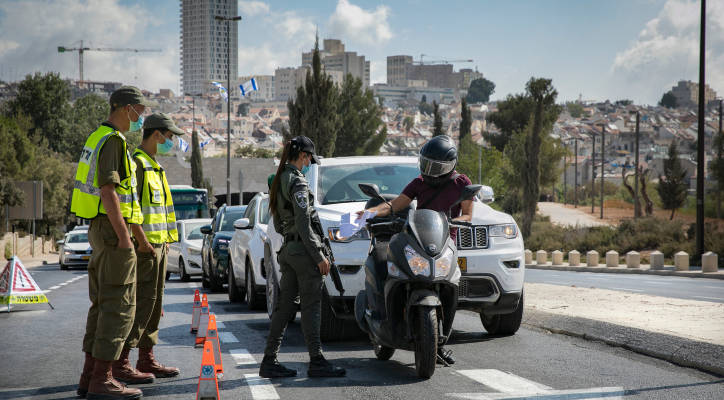Israelis ordered to stay home for two weeks and only go out for essential needs as infections skyrocket.
By Yakir Benzion, United With Israel
Israel headed into a two-week lockdown Friday that will extend through the Yom Kippur and Sukkot (Feast of Tabernacles) holidays in a bid to stem the skyrocketing infection rate that saw the country reach a record number of infections.
“Due to the sharp increase in coronavirus morbidity in Israel, we decided today on necessary measures to save lives. These lockdown measures are not easy but saving lives takes precedence over everything,” Prime Minister Benjamin Netanyahu said in a televised address to the nation.
“This is a national emergency. We are in the midst of a prolonged war – the coronavirus war. This is a war for the economy, for health and again – this is a war for life,” Netanyahu said.
“The second wave of the coronavirus is hitting the entire world and it is also hitting us. In recent days, almost every western country has seen record morbidity numbers and they are imposing severe restrictions on their citizens. Some of these countries have also imposed lockdowns over very extensive areas, including some that are larger than the State of Israel.”
The prime minister warned that “the pandemic is expected to exact an additional very heavy price in human lives. I regret telling you this but it is the truth,” he said, calling on the nation to pull together and comply with health regulations aimed at stemming the rampant spread of the disease.
Health Ministry statistics released Friday showed 7,527 Israelis tested positive for coronavirus in the past day, bringing the total number of confirmed active infections to 60,786. Of the 1,338 people hospitalized with coronavirus, 669 of them are in serious condition and of those 167 are connected to ventilators.
The number of those hospitalized has doubled in the past two months. Several hospitals reported they have exceeded their capacity and were sending coronavirus patients to other healthcare facilities.
The death toll from coronavirus stands at 1,378, with health officials worried that another 1,000 people or more might die in the next two months.
Under the closure, only stores that supply food and medicine will be allowed to serve customers, and only businesses deemed vital will be permitted to stay open. The public sector will be completely closed. High-risk groups will be asked to stay at home. People will be permitted to walk up to a kilometer away from homes except for getting food and medical care, and all outdoor gatherings will be restricted to 20 people.
This means no mass anti-government demonstrations of the kind that have taken place around the prime minister’s residence in Jerusalem over the past months will be allowed, and synagogues will not be filled with worshipers during this High Holy Day period.
